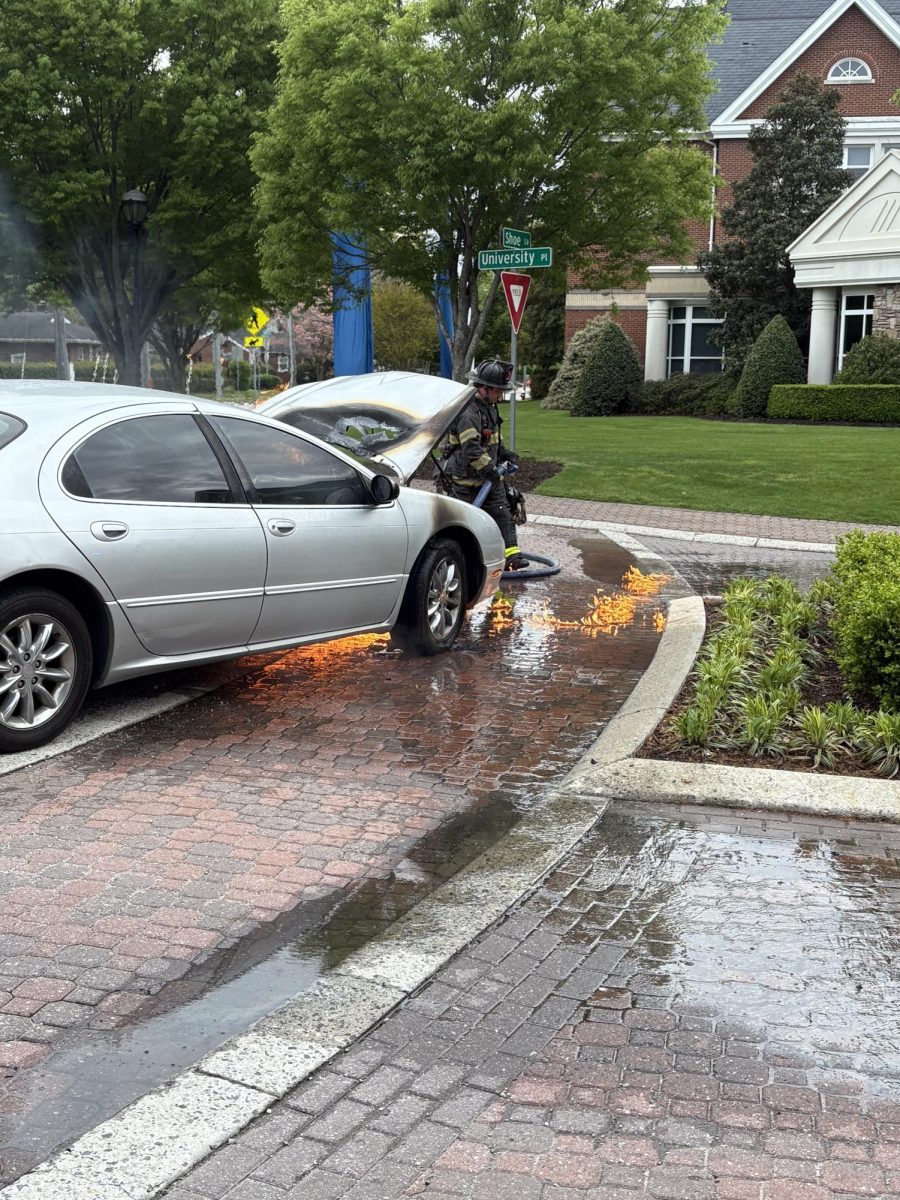Christopher Newport University will begin implementing several new revisions to the Title IX Office next year. These include the appointment of a new Title IX Coordinator, the outsourcing of investigations for Title IX cases, and a new confidential support role – operating independently from the Title IX Office – which will help students through the process.
These changes come a little over a year after three former CNU students spoke out, in a Virginian-Pilot article, to share their experiences with the university’s Title IX Office, evoking a campus-wide call for reforms.
The Pilot published a lengthy investigative article detailing the mishandling of these three CNU students’ Title IX cases. In one instance, a student received the wrong confidential file and was urged not to open a case against her perpetrator because it would hinder his graduation. The three students said they felt discouraged to continue their case formally because the office “Treated them in ways that made them doubt their own stories,” according to the article by The Virginian-Pilot.
“I think it’s hard not to,” said CNU’s Interim Title IX Coordinator and Assistant Vice President of Student Affairs, Katie Wellbrock, when asked if the office lost the trust of the students after the release of the article.
“I can’t fix any student’s experience in the past. All I can do is work on improvements and move us forward,” continued Wellbrock, explaining what she aimed to accomplish with her time as interim coordinator.
In response to The Virginian-Pilot story’s initial release, CNU’s Sexual Assault Awareness club, Where’s the Line, received more than 2,000 signatures on a petition that advocated for change in the Title IX Office. The three former CNU students also penned an open letter to the university, outlining the changes they would like to see made to the Title IX process, which received hundreds of signatures. Shortly after, CNU’s Interim President, Adelia Thompson, announced the creation of a Title IX review committee.
“I can’t apologize or deal with what has happened in the past. But I’m only one person and I can’t rebuild trust overnight,” said Wellbrock. “I think with new leadership, the direction that we are headed, the recommendations from this committee, I think it’s a step further.”
Many students just wanted answers, said Wellbrock, who hoped that with her 14 years of experience working at CNU, she would be able to give them some.
One of her main goals as the Interim Title IX Coordinator was to clarify the intent of the Title IX office, because, Wellbrock explained, there is a lot of “misinformation” and misunderstanding as to what exactly her job is and the role of the Title IX office.
“My job is to support students that are reporting a process, but Title IX are not counselors. Title IX are not advocates for either party,” she said. “Title IX is a place where a student can report and our job is to investigate and to make an administrative decision if there’s a policy violation.”
Title IX is a process that has to follow federal regulations. Wellbrock emphasized the “difference between reporting and supporting” and expressed understanding for the students who may feel that she and the Title IX office don’t care about them, as a result.
“Believe me, any student that walks through that door for whatever reason, I want to make sure they feel listened to, but my job is to make sure I’m following a process,” continued Wellbrock.
“That doesn’t mean they have to agree with how the process is,” she said “I’ll be honest, I don’t agree with how the federal route laws are written, but my job is to make sure that we’re still [following the rules,].”
“I work with students,” said Wellbrock referencing her position as Assistant Vice President of Student Affairs. “So I think anytime a student feels like something has happened to them, that’s gonna discourage me.”
This “misinformation” and confusion, as Wellbrock sees it, has resulted in the creation of a new confidential resource under the Office of the Vice President of Student Affairs and Dean of Students that will operate completely separate from the Title IX office. This role will be a place where students can access more resources and support in navigating the Title IX process.
They don’t want it to be another counselor, but rather another resource, explained Wellbrock, someone who can say during the process, “What do you need? How do I help support you?”
However, a person for this job has not been hired, which probably won’t take place until the summer. The exact details of what the job is and how it will operate are still fluctuating and they are just starting to flesh out exactly the details of the role, explained Wellbrock.
The next change that is coming to the Title IX Office is outsourcing investigations, which will begin next year. This has become more and more common for universities across the nation.
“I think the smaller ones like [CNU], are realizing it is hard to be neutral when we’re a small university [and] we know everybody,” said Wellbrock.
The Virginian-Pilot article directly comments on how hard it is for the university to remain impartial as they comment on how the Title IX office is the “investigator, judge and jury despite conflicting duties to the accuser and the accused.” It’s especially difficult in sexual assault cases where the evidence may be based more in testimonies than evidence.
“The feedback I’ve heard multiple times is it’s really hard for a student to feel like there is an unbiased decision when they know people involved,” said Wellbrock. “I think by truly providing these external people, a student might feel, going through the process, that they have a better chance of a decision that’s not biased in any way.”
Hiring experts who know and follow the regulations will ensure that “there’s equity on both ends,” explained Wellbrock, and that federal regulations are being followed correctly.
Wellbrock also noted that the sheer amount of resources it takes to conduct an investigation is extensive and can take a lot of time, especially when the office only consists of two people.
Hiring these outside investigators will give the office more support,so that when they have more than one case, it will help “move things along” in a “timely manner for the students,” Wellbrock said.
When it comes to the hiring process, the goal is for CNU to hire a company to conduct these investigations by Aug. 1. They might also explore obtaining appeals officers or advising for the students involved in these cases, but that could be depending on what the company offers.
Wellbrock is only serving as the Interim Title IX Coordinator for the 2023-2024 academic year, but will be a part of the hiring committee for the new coordinator. The university recently posted the job opening for the position, with a start date of no later than Sept. 1.
In hiring a new coordinator, Wellbrock explained that she wants someone who will be “all in” on CNU and the student experience, and someone who will “listen” and “engage” with students and the university community. She also wants them to be able to collaborate with different groups on campus, whether that is student affairs, human resources, or any other group that can benefit the student body.
Wellbrock called her experience this year as Title IX Coordinator a “listening tour,” which she hopes will help inform the next person who takes on the job. She emphasized that being able to hear from all different people at the university, specifically the students, has been important to her.
“[I have been able to listen to] how the community feels, what they’re looking for, where they believe we could make improvements [and] where they want us to focus efforts,” said Wellbrock, who expressed an understanding that no matter what they do in the Title IX office, it matters that each and every student feels open and willing to trust them again.




